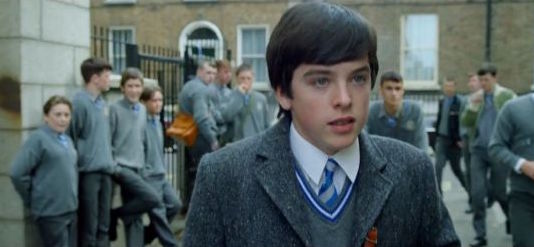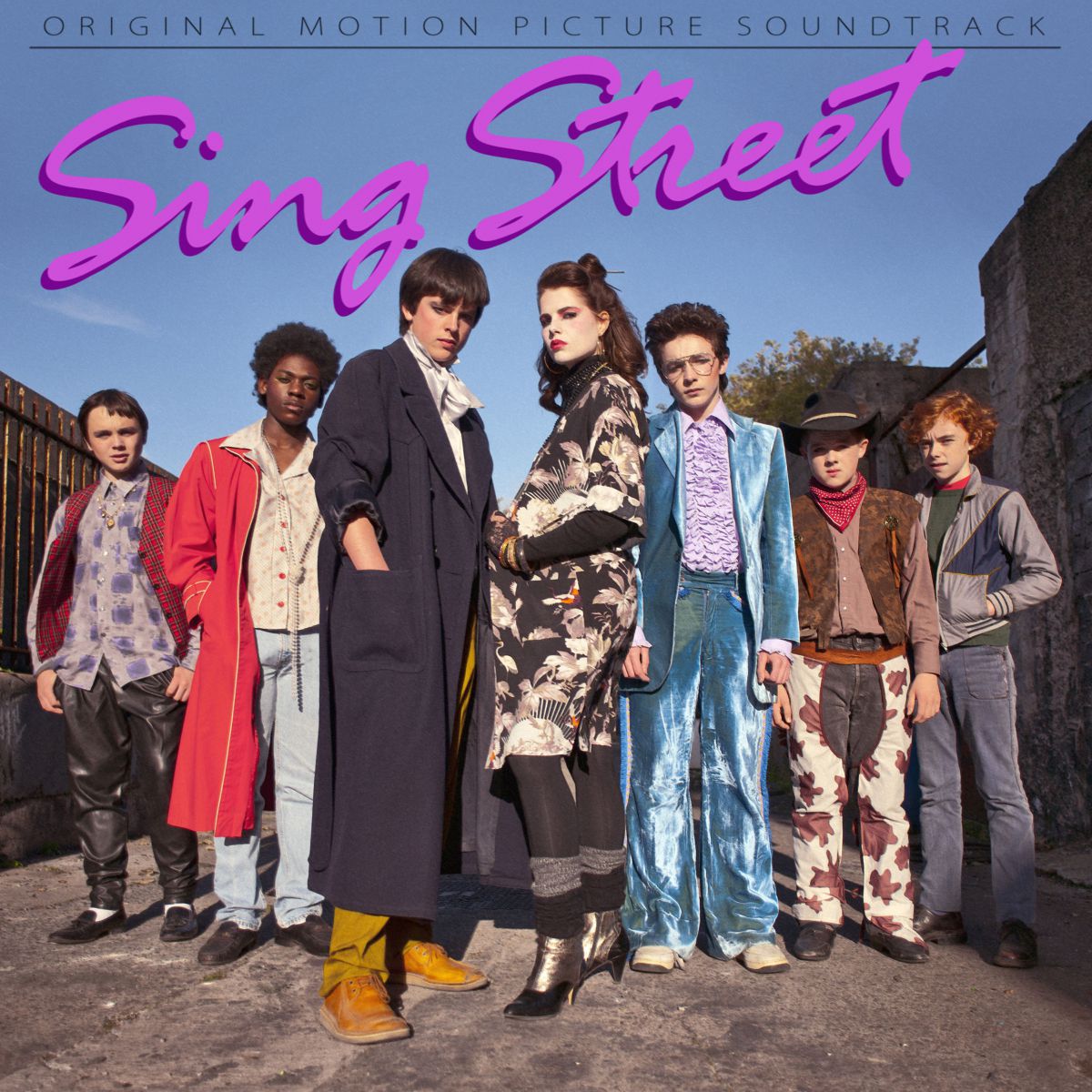Sing Street, the latest film from our most musician obsessed auteur John Carney, has been expanding with more theaters each week at a fairly strong clip. Six weeks in, there's no expansion (a very crowded weekend) but its fanbase keeps growing exponentially as more people "discover" it. Like Carney's previous music-based indies, the Oscar winning, transcendently low-fi Once and the more mainstream but surprisingly rewatchable Begin Again, whatever you might want to say about Sing Street an adjective that could safely and accurately describe all three films is "endearing"...

This music-heavy story of a motley group of Catholic schoolboys in impoverished 80s Ireland who start a band, is something of a shaggy dog movie. Parts of it are awkward and unkept: the older brother character, played by Jack Reynor, feels like a screenplay construct rather than a human being despite the film's obviously heartfelt dedication "to brothers"; the repetitions feel important until you're impatient from the running time (which is shorter than it feels given the film's simplicity); and even maybe the overly "happy" ending doesn't strictly work. But, here's the joyful thing - when you fall hard for someone or something, like a movie, you accept their flaws. After a while they don't feel like flaws so much as "character quirks" if you've gone head over heels.
 Not long into the movie -- though I wish I didn't think of blogging while movie-watching -- I thought "I'm going to write about the amazing songs by and how they keep improving from utterly derivative funny 'pastiche' ("The Riddle of the Model") to lively imperfect but earworm ready hits ("Drive It Like You Stole It") as the boys get better." But then I became distracted. "Oooh, I have to write about Ferdia Walsh-Peelo's lead performance. He's so watchable and authentic that he's totally selling this traditional character arc like Conor (nicknamed Cosmo) is a living breathing boy who is just attending school and trying to find himself and probably hasn't even though about 'character arcs' before unless he was writing a paper for English class in his previous posh school"
Not long into the movie -- though I wish I didn't think of blogging while movie-watching -- I thought "I'm going to write about the amazing songs by and how they keep improving from utterly derivative funny 'pastiche' ("The Riddle of the Model") to lively imperfect but earworm ready hits ("Drive It Like You Stole It") as the boys get better." But then I became distracted. "Oooh, I have to write about Ferdia Walsh-Peelo's lead performance. He's so watchable and authentic that he's totally selling this traditional character arc like Conor (nicknamed Cosmo) is a living breathing boy who is just attending school and trying to find himself and probably hasn't even though about 'character arcs' before unless he was writing a paper for English class in his previous posh school"
You see where this is going dear reader. Then I'd quickly moved on to the costumes (Tiziana Corvisieri) and makeup and hair department (Barbara Conway) and how well they charted this shuffle-play search for identity in ways that felt totally DIY like the kids dressed themselves, raided family closets and dyed their own hair without any money. After that I was on to the interesting way the film, which is entirely about boys, doesn't feel exclusionary and myopic but instead looks at its two central women with utter fascination. Even though the film doesn't pass the Bechdel Test, the women aren't ever truly reduced to "love interest" (Lucy Boynton) or "mom" (Maria Doyle Kennedy) as they would be in lesser films but come across as real people with interior lives, just interior lives that the boys aren't able or maybe quite willing to grasp. Partly that comes from the performances, but mostly that's just another symptom of John Carney's joy in storytelling and "Happy Sad" (to quote the film) understanding of people. It's easy to spot in the way he shoots actors, never forgetting that people beyond Lead Character exist and might be delightful to get to know if we had more time. Frankly, this indiscriminate curiousity and love for people, warts an all, is something that too few directors seem interested in cultivating. It makes Carney's pictures breathe in uniquely joyful and romantic ways.
In short I genuinely loved the film, despite its visible flaws, and I could never settle on what I had to say about it. So I mostly just read Daniel's review and nodded. So I turn it over to you. If you haven't seen it yet GET TO THE THEATER. But if you have, and with its abundance of riches, did you ever settle on what your favorite thing about it was?